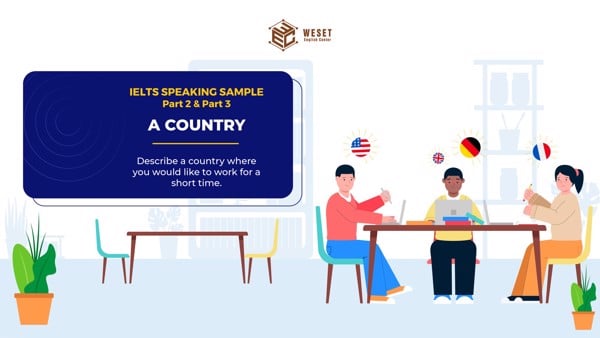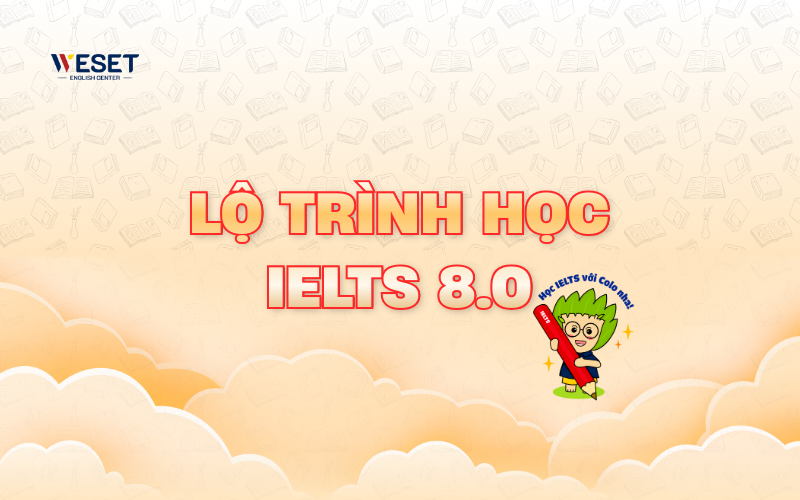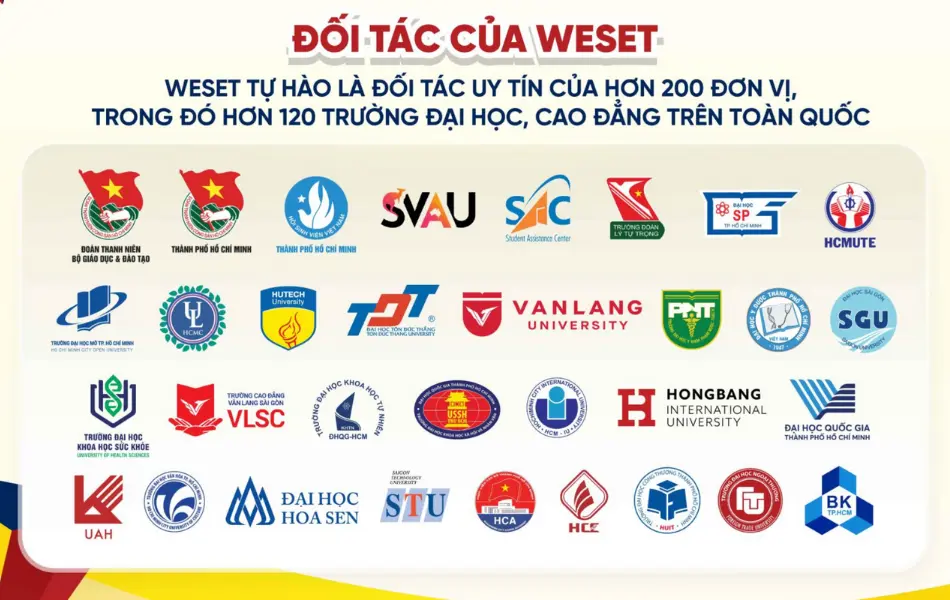Trang chủ Blog Bài thi IELTS mẫu Bài mẫu IELTS Sample Speaking IELTS Speaking Work in a Foreign Country Sample
IELTS Speaking Work in a Foreign Country Sample
- Vân Lam
- Bài mẫu IELTS Sample Speaking, Bài thi IELTS mẫu
MỤC LỤC
Tới với series giải đề tuần này của WESET, chúng ta sẽ tiếp tục giải một đề IELTS SPEAKING khá thú vị xoay quanh vấn đề việc làm ở nước ngoài (Working in a foreign country). Các bạn hãy theo dõi bài viết sau để tham khảo cách giải quyết vấn đề và học thêm từ vựng nhé!
1. SPEAKING PART 2 – WORK IN A FOREIGN COUNTRY
Describe a job you would like to do in a foreign country. You should say:
- where you would like to work
- what kind of job it would be
- when you would like to go
- and explain why you want to work there.
Where you would like to work?
I would like to talk about a nation where I want to have a job in the short term. It is the United States where English is the first language. I have some close relatives living there, and I plan to visit them next year, which grants me a chance to have a new experience working there.
What kind of job it would be?
Since my major is related to English language teaching, I am looking forward to working as a teacher of English in a foreign country. I just graduated from the Ho Chi Minh University of Education not long ago and I am currently employed at a language centre in my hometown. When I’m there, of course I won’t teach English to Americans, but rather to the immigrants who are trying to learn the language to integrate into the society.
When you would like to go?
Although to be honest, right now I don’t think my English skills are good enough to converse with Americans without difficulty because I sometimes find some language in American movies difficult to comprehend. I think that when I am more confident in my English proficiency, I’ll start applying for the visa.
Why you want to work there?
There are a number of reasons for this goal of mine. In my opinion, being there can facilitate the development of my own English as I have a great deal of opportunity to practice using the language. Not only that, as a language teacher, I have to be knowledgeable about the target language’s culture, which means that I need to be culturally literate in terms of the American culture. Another reason is that the US is one of the most innovative country with respect to English language teaching. That’s why I hope to hone my teaching skills when working there. Those skills will be valuable and help me a lot when I come back to teach here.
2. SPEAKING PART 3 – WORK IN A FOREIGN COUNTRY
1. What kinds of jobs are easy to get to a foreign country?
I think it depends on the countries themselves. In countries like the US where there are immigrants, it is difficult to find any particular job. In my opinion, it is only possible to apply for jobs that require manual work because they do not really appreciate that foreigners are employed in major sectors. But in countries like Canada where there is a shortage of labour, it is easier to be recruited in certain areas of work. So, it is really about what and where a person wants to work.
2. Should young adults work abroad?
Yes, if they have a chance. Such people are always full of energy and excited about new experiences. I believe that they can gain precious knowledge about their specialization, which they can apply to their home country’s context to help develop the country. Otherwise, they can seek an opportunity to settle down there and earn a living. The payrate there is definitely better than here, anyway. That’s why I think they really should if they’ve got a chance.
3. If they do not work abroad, would it help them travel to a foreign country?
Yes, absolutely. It’s fine if they don’t work. Travelling can also be really beneficial in many ways. Visiting a new place always brings pleasure and helps expand one’s outlook. Meeting new people and getting used to a new lifestyle can be valuable experience because it is always a better feeling to directly experience something new rather than to see it on the media. Understanding another country can also develop people’s mindset. They can learn good habits and cultural behaviors in terms of everyday life and adapt them when they come back. This may help them live a better life.
3. NEW WORDS AND PHRASES:
Part 2
in the short term: ngắn hạn
grant (v): cho
converse (v) with = have a conversation with: nói chuyện với
comprehend (v): hiểu
proficiency (n): năng lực
facilitate (v): tạo điều kiện cho
culturally literate (a): có hiểu biết về văn hóa
with respect to: về mặt/khía cạnh
hone (v): trau dồi
Part 3:
manual work (n): công việc chân tay
major sector (n): lĩnh vực chính
a shortage of: sự thiếu hụt
labor/labour (n): lao động
be recruited (v): làm thuê
area (n): lĩnh vực
precious (a): quý báu
specialization (n): chuyên môn
earn a living: kiếm sống
outlook (n): quan điểm
Để nắm rõ về các kỹ thuật và phương pháp giải quyết nhanh gọn các chủ đề IELTS Speaking khó nhằn, các bạn có thể đăng ký tư vấn về các khóa học của WESET tại đây.
Tham khảo thêm bài mẫu tại link sau: https://weset.edu.vn/blogs/bai-hoc-moi-ngay
Một số topic Speaking thường gặp khác:







